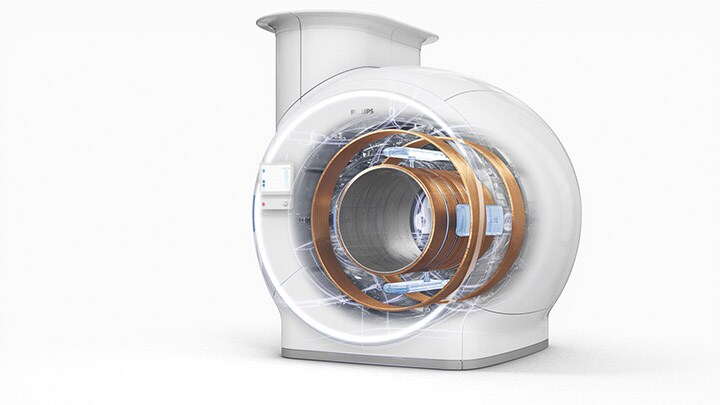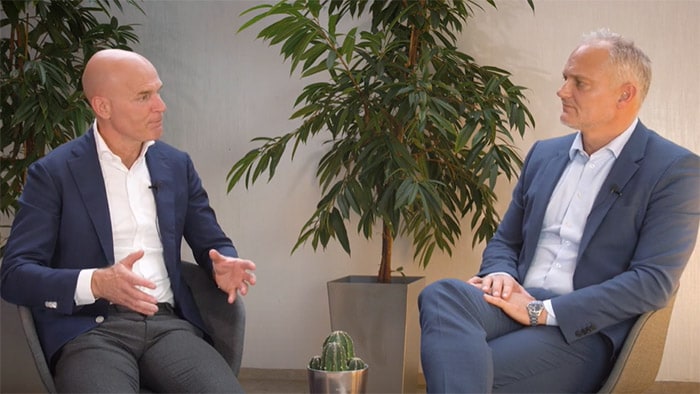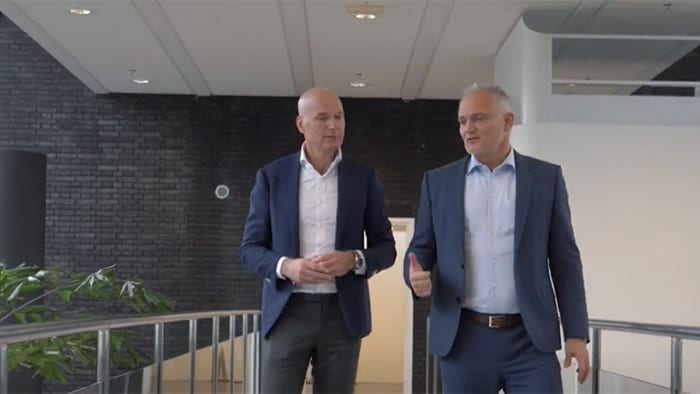As leaders around the world recently convened to discuss climate change solutions at the Climate Change Conference of the Parties (COP26), Philips is taking its own ambitious measures to make healthcare more accessible and sustainable. Human health and environmental health go hand in hand. While the lives and livelihoods of millions around the world are threatened by climate change, the world’s healthcare systems contribute to over 4% of global CO2 emissions [1]. Philips targets its CO₂ emission reduction efforts in three key areas: day-to-day operations, sustainable and circular product and business model innovation, and supply chain greening. Philips is fundamentally redesigning its products and business models to be less reliant on natural resources. A key example of this is Philips’ first helium-free MRI system, Ambition 1.5T MR, which features the industry’s first fully sealed magnet technology – BlueSeal. This breakthrough innovation is critical to the healthcare industry due to the increasing challenges of a limited helium supply.

Following the launch of Ambition 1.5T MR in 2018, Philips newest fully sealed solution will be revealed at the upcoming RSNA 2021, where the company will showcase its latest innovations that exemplify how sustainability and innovation can go hand-in-hand. Collaboration is key to achieving sustainability. Beyond its own organization, Philips works closely with partners and customers to offer concrete solutions to environmental challenges. This collaboration is highlighted in a recent conversation between Arjen Radder, General Manager of Magnetic Resonance at Philips, and Michael Kirkegaard, CEO of Aleris-Hamlet Hospital in Copenhagen, Denmark, discussing how they are working together to implement innovative health solutions grounded in sustainability.
Whether we discuss waste recycling or a major new investment like an MRI from Philips, we have to secure that we live the sustainably agenda at all hospitals, and take the agenda of sustainability from theory into practical life in our day-to-day operations.
Mr. Michael Kirkegaard
CEO, Aleris-Hamlet Hospital, Copenhagen, Denmark
Philips is committed to providing the industry leadership needed to accelerate climate action and taking measures to significantly reduce the CO₂ footprint of its supply chain, recently announcing an additional ambitious action to combat climate change. Philips will also participate in a webinar at the upcoming Radiological Society of North America (RSNA) annual meeting, discussing the critical shift to realizing sustainable and resilient radiology, taking place Sunday, Nov. 28 at 9:00AM – 10:00AM CST. Webinar participants include Robert Metzke, Global Head of Sustainability at Philips, who will be joined by Dr. Reed Omary, MD, Chair of the Dept. of Radiology at Vanderbilt University Medical Center, U.S.A,; Dr. Stephen Chan, MD, Associate Prof. of Clinical Radiology at Columbia University, U.S.A.; and Ariella Shuster, General Manager of Circular Equipment at Philips. Webinar registration is open to all RSNA attendees. Follow @PhilipsLiveFrom for updates throughout the RSNA 2021 event, and join Philips at RSNA 2021 where the company will spotlight its latest advanced technology driving connected workflows and smart connected imaging systems, to increase efficiency and diagnostic confidence in precision care and treatment. [1] Health Care Without Harm (2019). Healthcare’s climate footprint: How the health sector contributes to the global climate crisis and opportunities for action (p.22). https://noharm-global.org/documents/health-careclimate-footprint-report
Share on social media
Topics
Contact

Kathy O'Reilly
Philips Global Press Office Tel.: +1 978-221-8919
You are about to visit a Philips global content page
Continue














